Have you ever pulled up to the gas pump and wondered which of the gasoline types you should put in your car? Did you end up choosing the cheapest option because you had no idea what the difference was? If so, you are not alone. 73% of U.S. drivers choose gas based on price. While price is an important consideration, it will benefit you to have a better understanding of what type of gasoline you are putting in your car and why.
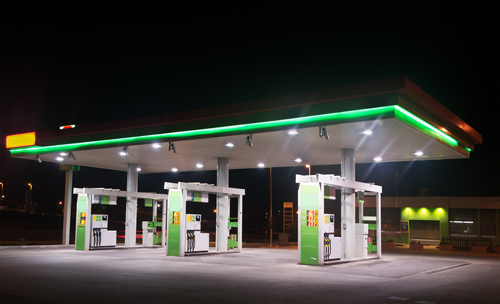
Gasoline Types
There are generally four options for fueling your vehicle. The three most common gasoline fueling options are: unleaded, mid-grade, and premium — have one main difference: the octane grade.
The octane grade or rating is based on how much oxygen is in the fuel. The higher the octane grade, the more resistant an engine is to knocking. Knocking is a rattling or pinging sound that results from premature ignition of the compressed fuel-air mixture in one or more cylinders. This can cause serious damage to the engine over time. In 1996 the Environmental Protection Agency mandated detergent additives for all gasoline used in the U.S.. From that point on knocking became rare, affecting very few vehicles, even at the lowest octane grade.
Unleaded Gasoline
Unleaded gasoline has the lowest octane rating, generally 87 grade octane. The majority of U.S. cars will run on unleaded gasoline without problems.
Mid-Grade Gasoline
Mid-grade gasoline generally has an octane rating of 88-90.
Premium Gasoline
Premium has an octane rating of 91-94. This grade is generally recommended or required for sports cars or luxury vehicles. It is not usually necessary for standard vehicles.
Diesel — Diesel is a different type of fuel and doesn’t have an octane grade. It is most often used for trucks, tractors, and semi-trucks because diesel engines are designed to provide more torque. Because diesel is 20% more fuel efficient than gasoline, car makers are using diesel engines in economy cars as well. However, do not use diesel in your gasoline engine. It will damage your engine so severely that it may need to be completely replaced. And vice versa, do not put diesel fuel in a vehicle that has a gasoline engine!
Gasoline Types – Choosing the Right Fuel for your Vehicle
The best way to choose the right fuel for your vehicle is to check your vehicle owner’s manual. Most cars run on unleaded, and there is generally no benefit to upgrading the fuel type you use beyond the owner’s manual recommendation. The fuel savings of upgrading are generally lower than the cost of higher octane fuel. Some people believe that higher octane fuel will clean your engine for you. This is a misconception. Premium gasoline isn’t any cleaner than mid-grade or unleaded gasoline.
Do not use a lower octane grade fuel than recommended in your engine either. This can negatively affect your engine’s power and fuel efficiency.
It is very rare, but if you hear “knocking or pinging in your engine, you could upgrade your gasoline to either mid-grade or premium” temporarily. Bear in mind, this is only a temporary fix. A knocking or pinging condition is usually indicative that either something is wrong with your engine or a control issue is present. Definitely would recommend taking your vehicle to an auto repair shop so they can check for any problems. Many times, a Check Engine Light/Service Engine Soon light will illuminate as well.
Most gas stations offer diesel and three types of octane gas. The octane levels are displayed on a bright yellow sticker on each gas pump so you know what you are putting in your engine. Keep in mind that octane grades can vary from state to state. To ensure that you know what you are paying for, check the yellow sticker for the exact octane level.
Luckily for most U.S. drivers, choosing gas based on price is okay since most vehicles run smoothly on basic unleaded gasoline. Keep in mind that if you have a luxury or sports vehicle, a truck, or if you hear knocking or pinging, you may be using the wrong fuel and need to correct this immediately to protect your engine.
If you are concerned about your engine or just want to be sure that you are using the right fuel, you can always check with an auto repair center that you trust and get a full car checkup while you’re at it. Feel free to contact us at Northwest Auto Center…we are always happy to help! After a reputable shop has looked at a pinging or knocking condition (and possibly performed a repair), you can then drive with confidence.

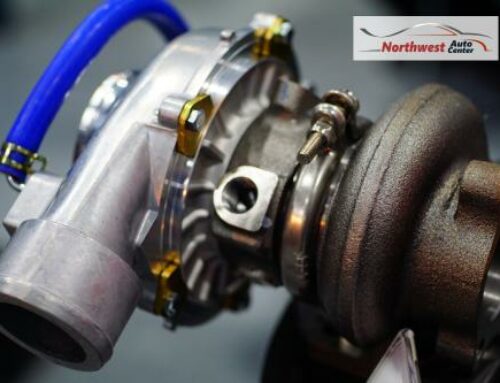
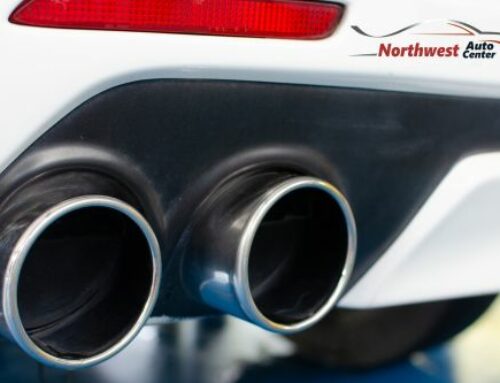
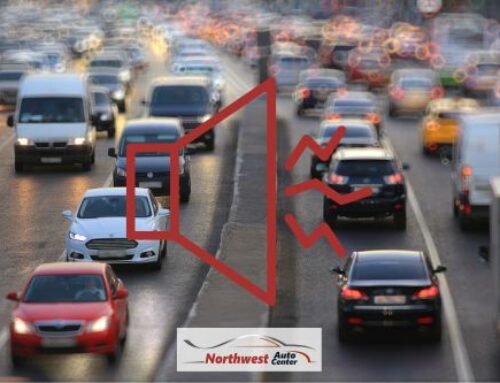
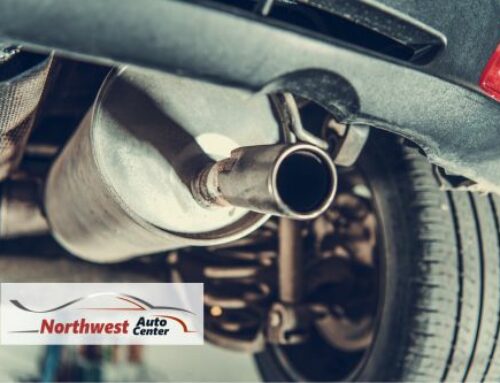
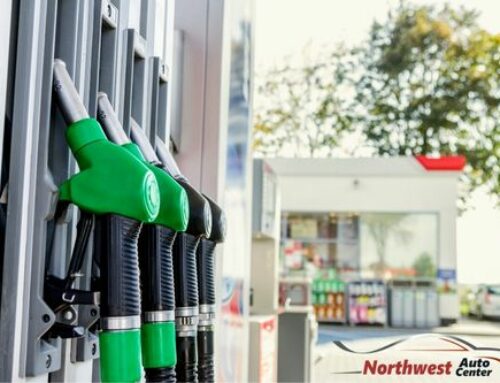
Leave A Comment
You must be logged in to post a comment.